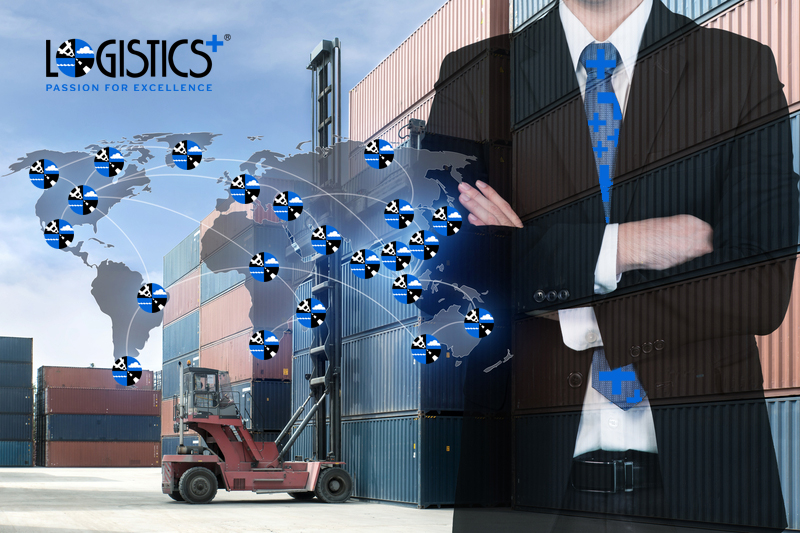
by logisticsplus | Feb 24, 2021 | News
 There’s an article we saw posted last week on the Global Trade magazine website entitled “What Makes a Good Logistics Provider?” written by Chris Hale, the Founder & CEO of Kountable, Inc. Mr. Hale’s company operates a platform that vets trade service providers, constructs deals and manages trade execution for a large volume of trades into challenging markets. As result, his firm has learned by necessity to identify the hallmarks of high-quality logistics providers and to note the red flags that signal ineffective ones. These are the qualities they look for in logistics partners they recommend to their clients, along with some comments about how Logistics Plus is an example of a logistics partner who has those same traits.
There’s an article we saw posted last week on the Global Trade magazine website entitled “What Makes a Good Logistics Provider?” written by Chris Hale, the Founder & CEO of Kountable, Inc. Mr. Hale’s company operates a platform that vets trade service providers, constructs deals and manages trade execution for a large volume of trades into challenging markets. As result, his firm has learned by necessity to identify the hallmarks of high-quality logistics providers and to note the red flags that signal ineffective ones. These are the qualities they look for in logistics partners they recommend to their clients, along with some comments about how Logistics Plus is an example of a logistics partner who has those same traits.
Experienced – A wave of brand-new companies have sprung up looking to fill the demand created by the COVID-19 pandemic. Always work with logistics companies that have been in operation for a number of years. Not only does this show that the company has a history of success, but experienced logistics providers will have a better understanding of local regulations and possible sticking points.
Logistics Plus will be celebrating its 25th anniversary this year. We were “born from the ribs” of GE Transportation as a lead logistics company. We have enjoyed growth every year, and today we have over 500 employees and over $300 million in global sales.
Good Customer Service Team – A professional, knowledgeable and robust customer service team will not only facilitate clear communication but is a sign of a quality company. Clear and effective communication from logistics providers also saves traders time and energy building and executing trades.
Logistics Plus humbly prides itself on providing award-winning customer service. In recent years, our services have been recognized as best-in-class by distinguished industry resources, such as Global Trade, SupplyChainBrain, Multichannel Merchant, Transport Topics, and others. Although we have transformed into a technology company as much as we are a logistics provider, it is still the quality of our people and the support they provide that sets us apart.
Responsive – It is important that logistics providers respond to messages quickly and are proactive in providing updates. When goods arrive at the right place on time, this should be communicated quickly. When communication is slow and sporadic, it is often the case that the company is unorganized, or goods are not where they are supposed to be.
Logistics Plus maintains a very flat, nimble, and responsive organizational structure. This allows us to be very responsive to our customers’ needs. Every employee is provided a company-issued mobile phone and we make it known that our customers expect 24/7/365 service to ensure their goods are delivered on-time. Our technology supports responsive communications by providing proactive tracking reports, weather impact dashboards, and other business intelligence that allow our employees and customers to more effectively manage their supply chains.
Diligent – The logistics of international trade are complicated. Attention to detail is necessary as goods change hands and pass-through ports. A diligent company will have the correct documentation for the goods and communicate effectively with the necessary parties, avoiding tax penalties, delays, and confusion that cut into revenue.
Logistics Plus is a global company with employees and offices in over 30 countries around the world. As a prominent international freight forwarder, we manage hundreds of thousands of import and export shipments around the world. We know diligence is important, which is why we also have a full-service customs brokerage and global trade compliance team to help keep us and our customers on pace with the changing rules of global trade.
Registered with Appropriate Government Agencies – Logistics providers must be registered with the necessary agencies to do business in the jurisdictions in which they operate, such as the local revenue authorities. It is important to confirm that the company is registered to conduct business in the countries where the goods are to be picked up and delivered, and anywhere they may land in between.
Logistics Plus maintains transparent certifications and compliance with all domestic and international agencies. Additionally, we are participating in many governmental programs focused on security and sustainability, such as CTPAT and SmartWay.
Global Presence – A global presence is both useful and a sign of a reputable logistics provider. However, many logistics providers do not operate globally. Minimally, the company you choose should operate in the countries relevant to the transaction. Established companies with a large presence are often more experienced, and may be able to offer additional services, or deal with complications more quickly and easily than smaller operations.
Logistics Plus has a network of people and resources that touch over 30 countries worldwide, and we have additional contacts and connections in many other countries. Whether it is standard freight forwarding cargo or big heavy-lift project cargo, we have engineers and logicians around the world making it happen.
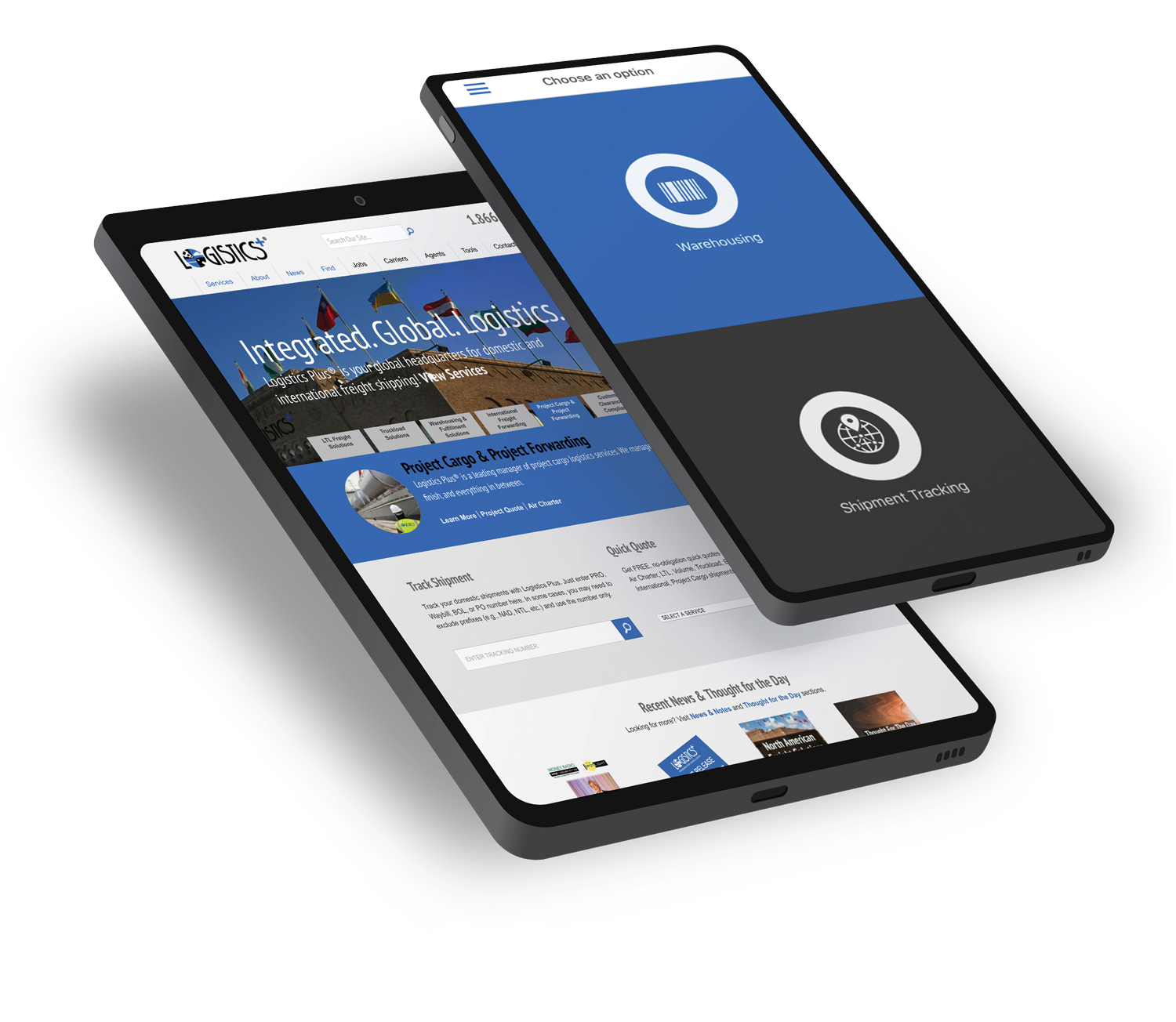 In addition to the comments noted above, check out the “What it means to be A 21st Century Logistics Company” article we posted last week which includes additional traits shippers should expect from contemporary logistics providers.
In addition to the comments noted above, check out the “What it means to be A 21st Century Logistics Company” article we posted last week which includes additional traits shippers should expect from contemporary logistics providers.
Check out the Global Trade magazine website at www.globaltrademag.com for other good articles on global trade and logistics. Global Trade has named Logistics Plus a Top 50 3PL the past two years and there is an active Logistics Plus Profile in the Global Trade “Find a Partner” online directory.

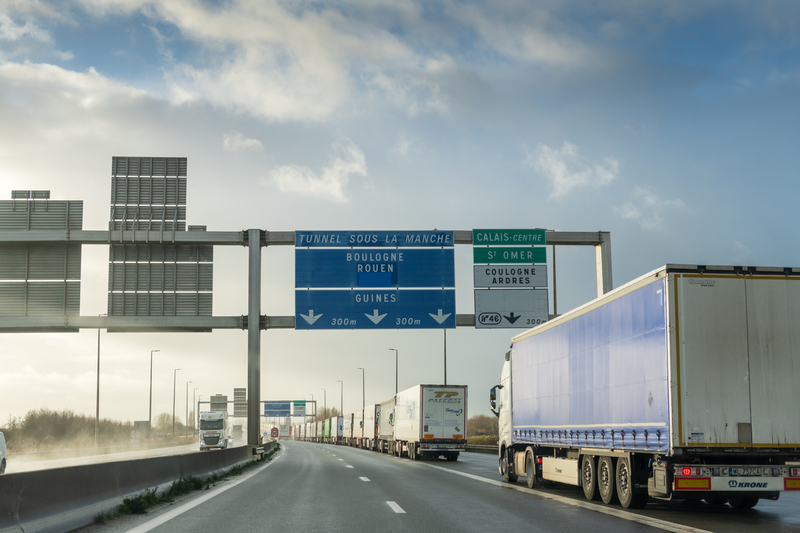
by logisticsplus | Feb 22, 2021 | News
 After years of negotiation and uncertainty, we are officially in the post-Brexit era. To preserve their mutually beneficial trading relationship, the European Union (EU) and United Kingdom (UK) reached a deal that went into place on January 1, 2021. While the agreement is beneficial for both parties, questions remain about its impact on the logistics and transportation industry. The new regulations at the border are already causing major blocks and delays.
After years of negotiation and uncertainty, we are officially in the post-Brexit era. To preserve their mutually beneficial trading relationship, the European Union (EU) and United Kingdom (UK) reached a deal that went into place on January 1, 2021. While the agreement is beneficial for both parties, questions remain about its impact on the logistics and transportation industry. The new regulations at the border are already causing major blocks and delays.
Here are some things that logistics and supply chain companies must take into account after the newest regulations:
- Traders must consider the rules of origin. These complex rules apply to goods that qualify for preferential trade terms under the agreement.
- All imports and exports are subject to customs formalities. Trading in both the UK and EU means complying with two different tax and legal systems.
- Companies are facing higher logistics costs. Trucking companies are reluctant to cross the border resulting in less capacity and higher surcharges.
- All imports into the EU must meet new standards and will be subject to regulatory checks and controls for safety, health, and other public policy purposes.
- Traders are obliged to change their delivery terms with their suppliers and customers from DDP to DAP to avoid complex customs procedures.
- Some traders face cash flow issues as import Value Added Tax (VAT) is payable when entering the European Union.
As a result of the new regulations, the Logistics Plus Europe team has noticed that many traders are not fully prepared for this transition. Increased potential for delays means that you need to have tight control over every aspect of your supply chain. Once you have full visibility of your supply chain, you can begin to plan and break down how the post-Brexit era changes things on an operational level.
At Logistics Plus, we understand the impact of these new regulations and how they affect customers and their transport flows. Our European team operates distribution centers in the UK and in the Netherlands that offer full customs brokerage services and regular trucking transfers between the two countries. We have a wide variety of services to help our customers optimize and facilitate European and UK VAT requirements. Additionally, Logistics Plus offers Importer of Record (IOR) and Exporter of Record (EOR) services that our customers can count on for a non-disrupted supply chain.
If you need assistance navigating the post-Brexit logistics era, please contact our team of logistics experts today.

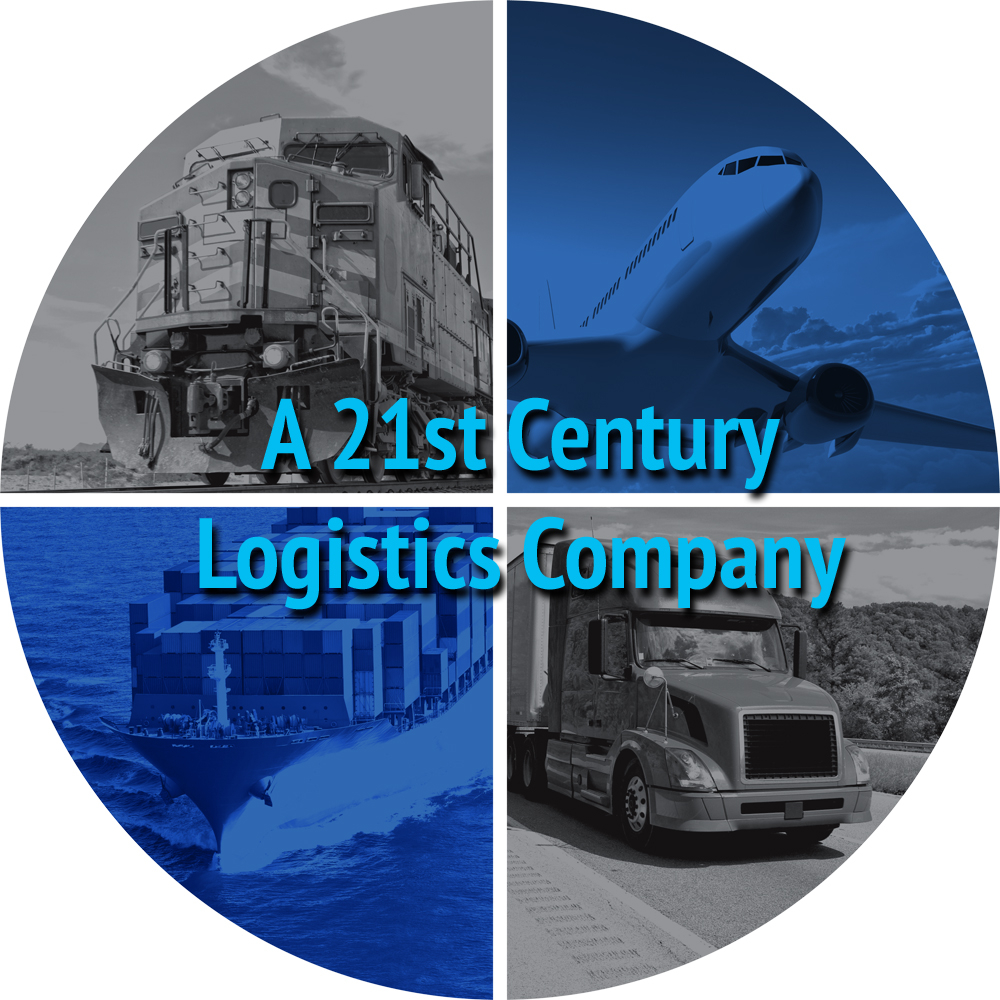
by logisticsplus | Feb 18, 2021 | News
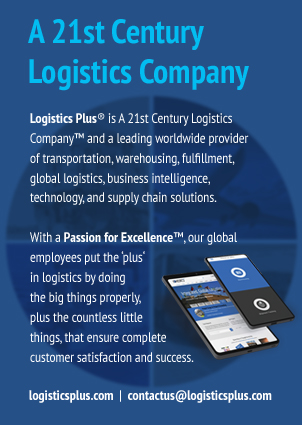 Yesterday we announced that Logistics Plus is being profiled in the Inbound Logistics 2021 Logistics Planner. The profile and accompanying advertisement introduced our newest descriptor … A 21st Century Logistics Company ™. So what does it mean to be a 21st-century logistics company? First and foremost, it means that Logistics Plus is a reliable partner known for developing creative solutions to critical challenges. It also means that Logistics Plus, over the past 25 years, has developed key traits to address contemporary supply chain opportunities and problems. As it pertains to you and your business, that means:
Yesterday we announced that Logistics Plus is being profiled in the Inbound Logistics 2021 Logistics Planner. The profile and accompanying advertisement introduced our newest descriptor … A 21st Century Logistics Company ™. So what does it mean to be a 21st-century logistics company? First and foremost, it means that Logistics Plus is a reliable partner known for developing creative solutions to critical challenges. It also means that Logistics Plus, over the past 25 years, has developed key traits to address contemporary supply chain opportunities and problems. As it pertains to you and your business, that means:
- We manage your logistics so you can focus on your core business.
- We have been in business for nearly 25 years, and our teams have a wide variety of skills across many disciplines – we can do pretty much anything needed across your entire supply chain.
- Our teams can integrate with your company in various ways, from full-time onsite resources to offsite logistics management of multiple locations.
- We manage inbound and outbound domestic freight and international cargo.
- Using technology, business intelligence, and global supply chain control towers, we can connect all the links in your supply chain, from vendors to end customers.
- Our services are customized to your needs, so you always get exactly what you want and need.
- We have offices in close to 30 countries throughout the world, and we have valued partners in dozens of others.
- Our professionals keep up with the constantly changing logistical landscape – after all, this is still very much a people business.
- We are big enough to be effective but small enough that your business will be important to us – we call this the ‘Goldilocks Zone.’
- With a Passion For Excellence™, we are the company that is focused on solving problems and taking away your headaches!
If you haven’t already, we invite you to watch our introductory video below. As we explain in the video: Logistics is in our DNA … this is what we do. Let us do it for you too!
What’s your logistics or supply chain challenge? Contact us for a 21st-century solution today.

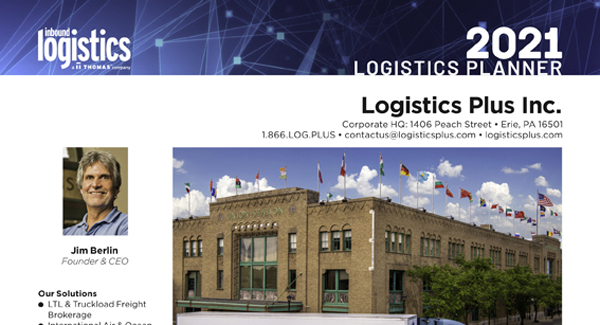
by logisticsplus | Feb 17, 2021 | News
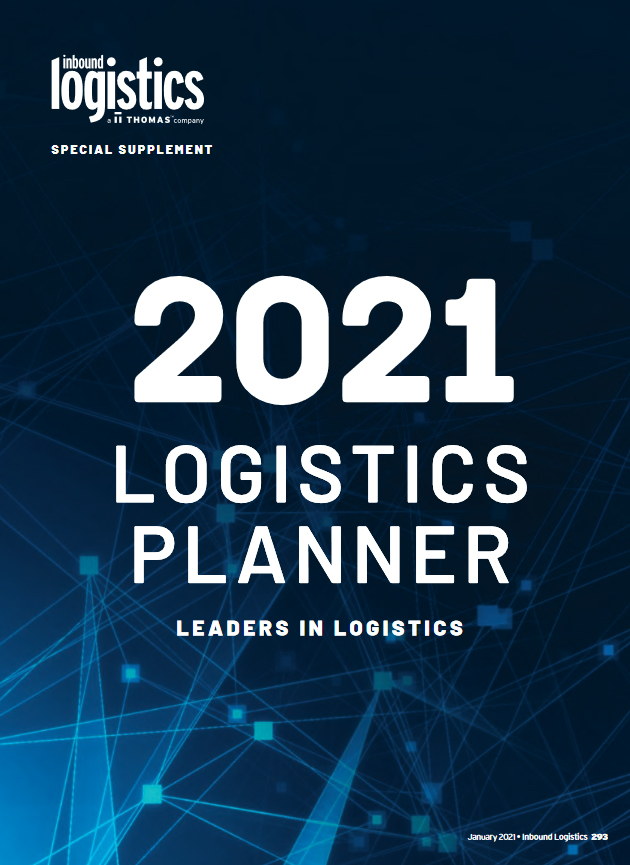 Logistics Plus has been profiled as a top third-party logistics (3PL) company by Inbound Logistics for its 2021 Logistics Planner. In its 29th year of publication, the recognized industry planner helps companies find the right technology solutions and transportation and logistics partners to drive supply chain efficiency. With both print and digital editions, the annual issue is updated with profiles of leaders in transportation, technology, logistics, and more who stand ready to help businesses face upcoming challenges to optimize their supply chains.
Logistics Plus has been profiled as a top third-party logistics (3PL) company by Inbound Logistics for its 2021 Logistics Planner. In its 29th year of publication, the recognized industry planner helps companies find the right technology solutions and transportation and logistics partners to drive supply chain efficiency. With both print and digital editions, the annual issue is updated with profiles of leaders in transportation, technology, logistics, and more who stand ready to help businesses face upcoming challenges to optimize their supply chains.
The Logistics Plus profile appears on page 350 of the publication, and an accompanying advertisement appears on page 195. The profile and advertisement formally introduce our new but appropriate descriptor, A 21st Century Logistics Company™, to recognize the unique and contemporary ways that Logistics Plus develops creative solutions for today’s most critical supply chain challenges.
Working as your 3PL, 3½PL, or 4PL partner, Logistics Plus is the company that handles supply chain challenges from start-to-finish by doing what other logistics companies can’t or won’t do. We’re small enough to be agile and responsive to your needs, yet large enough to have a network of solutions that span your entire supply chain.
You can view PDF versions of the Logistics Plus profile and advertisement by clicking the two images below.
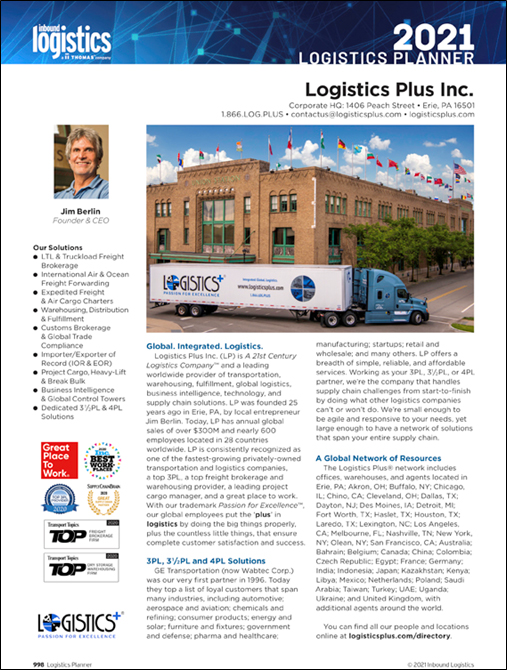
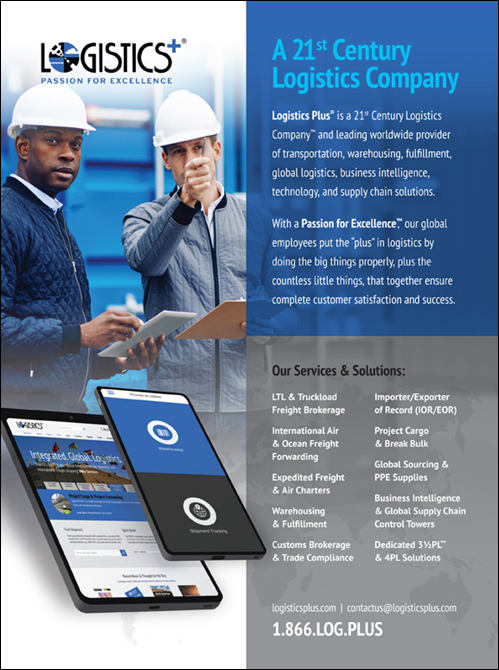

You can view the entire 2021 Logistics Planner digital edition online here: https://resources.inboundlogistics.com/digital/issues/IL_Digital_January2021.pdf


by logisticsplus | Dec 29, 2020 | News
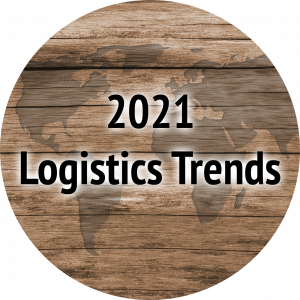 If 2020 taught us anything, it’s that the future is always uncertain. The global pandemic that shook the world has altered and disrupted the logistics and supply chain industry for years to come. Companies have an increased urgency to fill the gaps in their supply chain that the pandemic exposed. To prepare for 2021, we dive into some of the top supply chain and logistics trends to look for this coming year.
If 2020 taught us anything, it’s that the future is always uncertain. The global pandemic that shook the world has altered and disrupted the logistics and supply chain industry for years to come. Companies have an increased urgency to fill the gaps in their supply chain that the pandemic exposed. To prepare for 2021, we dive into some of the top supply chain and logistics trends to look for this coming year.
Sustainability
One notable trend in the supply chain and logistics industry is the advancement of environmentally-friendly logistics practices. Besides benefitting us and our planet, it’s cost-effective, promotes a good brand, and increases customer loyalty. Most logistics companies are joining sustainability partnerships and organizations that promote cleaner fuel, more efficient equipment, and lower emissions. As we shift to 2021, look for even more businesses to lower their carbon footprint to align with this sustainability trend.
Supplier Diversification
As 2021 begins, logistics companies continue to find ways to incorporate diverse suppliers in their daily operations. Ideally, supplier diversity programs combine social responsibility with the desire for a better and more inclusive world. Not only does supplier diversity benefit under-represented businesses, but it also increases the economic impact of our nation by creating more jobs and higher wages for all. Small and minority-owned businesses will play a major part in supply chains moving forward.
Supply Chain Visibility
15 years ago, supply chain visibility was virtually an unknown term. Today, visibility has become a must-have for supply chain managers around the globe. Increased communication is a major factor for improving supply chain visibility because it allows companies to identify the gaps in their current processes. Visibility also ensures that you are knowledgeable about every aspect of your product’s life cycle and inventory levels, which can help you improve performance and reduce errors.
The Growth of Omnichannel
This past year has taught us that in order to succeed from a sales standpoint, companies need to maximize every available sales channel. These channels include e-commerce, direct-to-consumer, retail, and distributors. Whether a customer is shopping online or in-person, your business should be able to offer convenient omnichannel services. By consolidating demand and optimizing your supply chain strategy across every channel, companies can maximize service, minimize costs, and grow revenues.
Flexibility
In 2020, companies quickly learned that they must be flexible and agile to overcome supply chain disruptions. To ensure stability, companies must ensure that their supply chains are agile enough to cope with unknown events such as pandemics, natural disasters, and the changing costs and availability of raw materials. In 2021, companies must have contingency plans in place so that they can respond quickly to disruptions in production, supply, and delivery.
Staying ahead of these supply chain and logistics trends can ensure that supply chain disruptions have a minimal effect on your business. By embracing new trends and technologies, the industry is set to face new challenges and achieve greater efficiency.




 There’s an article we saw posted last week on the Global Trade magazine website entitled “What Makes a Good Logistics Provider?” written by Chris Hale, the Founder & CEO of Kountable, Inc. Mr. Hale’s company operates a platform that vets trade service providers, constructs deals and manages trade execution for a large volume of trades into challenging markets. As result, his firm has learned by necessity to identify the hallmarks of high-quality logistics providers and to note the red flags that signal ineffective ones. These are the qualities they look for in logistics partners they recommend to their clients, along with some comments about how Logistics Plus is an example of a logistics partner who has those same traits.
There’s an article we saw posted last week on the Global Trade magazine website entitled “What Makes a Good Logistics Provider?” written by Chris Hale, the Founder & CEO of Kountable, Inc. Mr. Hale’s company operates a platform that vets trade service providers, constructs deals and manages trade execution for a large volume of trades into challenging markets. As result, his firm has learned by necessity to identify the hallmarks of high-quality logistics providers and to note the red flags that signal ineffective ones. These are the qualities they look for in logistics partners they recommend to their clients, along with some comments about how Logistics Plus is an example of a logistics partner who has those same traits. In addition to the comments noted above, check out the “What it means to be A 21st Century Logistics Company” article we posted last week which includes additional traits shippers should expect from contemporary logistics providers.
In addition to the comments noted above, check out the “What it means to be A 21st Century Logistics Company” article we posted last week which includes additional traits shippers should expect from contemporary logistics providers.


 After years of negotiation and uncertainty, we are officially in the post-Brexit era. To preserve their mutually beneficial trading relationship, the European Union (EU) and United Kingdom (UK) reached a deal that went into place on January 1, 2021. While the agreement is beneficial for both parties, questions remain about its impact on the logistics and transportation industry. The new regulations at the border are already causing major blocks and delays.
After years of negotiation and uncertainty, we are officially in the post-Brexit era. To preserve their mutually beneficial trading relationship, the European Union (EU) and United Kingdom (UK) reached a deal that went into place on January 1, 2021. While the agreement is beneficial for both parties, questions remain about its impact on the logistics and transportation industry. The new regulations at the border are already causing major blocks and delays.






 If 2020 taught us anything, it’s that the future is always uncertain. The global pandemic that shook the world has altered and disrupted the logistics and supply chain industry for years to come. Companies have an increased urgency to fill the gaps in their supply chain that the pandemic exposed. To prepare for 2021, we dive into some of the top supply chain and logistics trends to look for this coming year.
If 2020 taught us anything, it’s that the future is always uncertain. The global pandemic that shook the world has altered and disrupted the logistics and supply chain industry for years to come. Companies have an increased urgency to fill the gaps in their supply chain that the pandemic exposed. To prepare for 2021, we dive into some of the top supply chain and logistics trends to look for this coming year.
